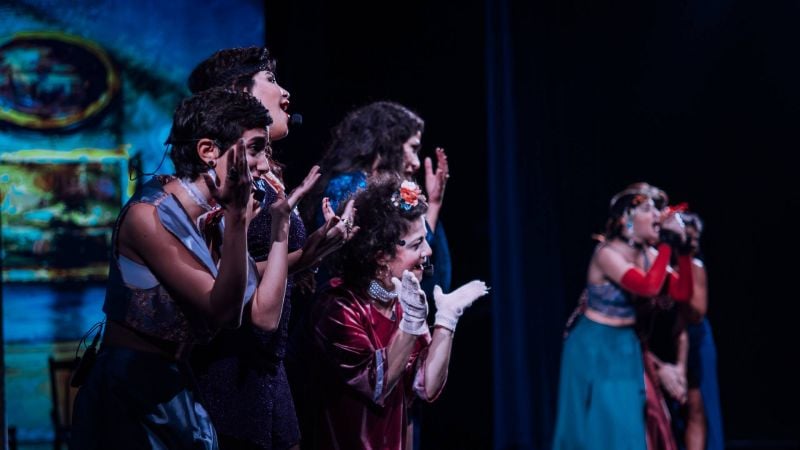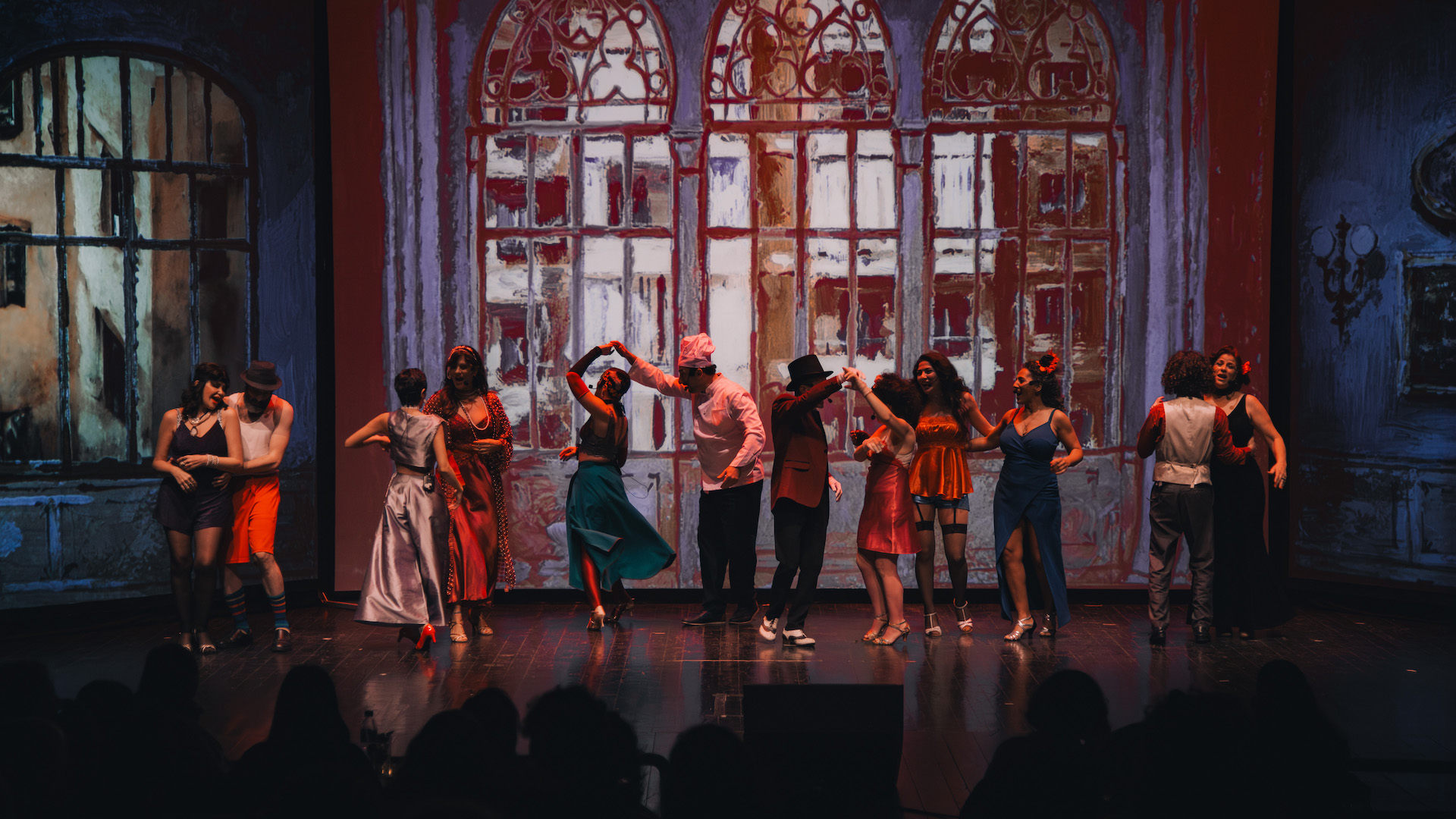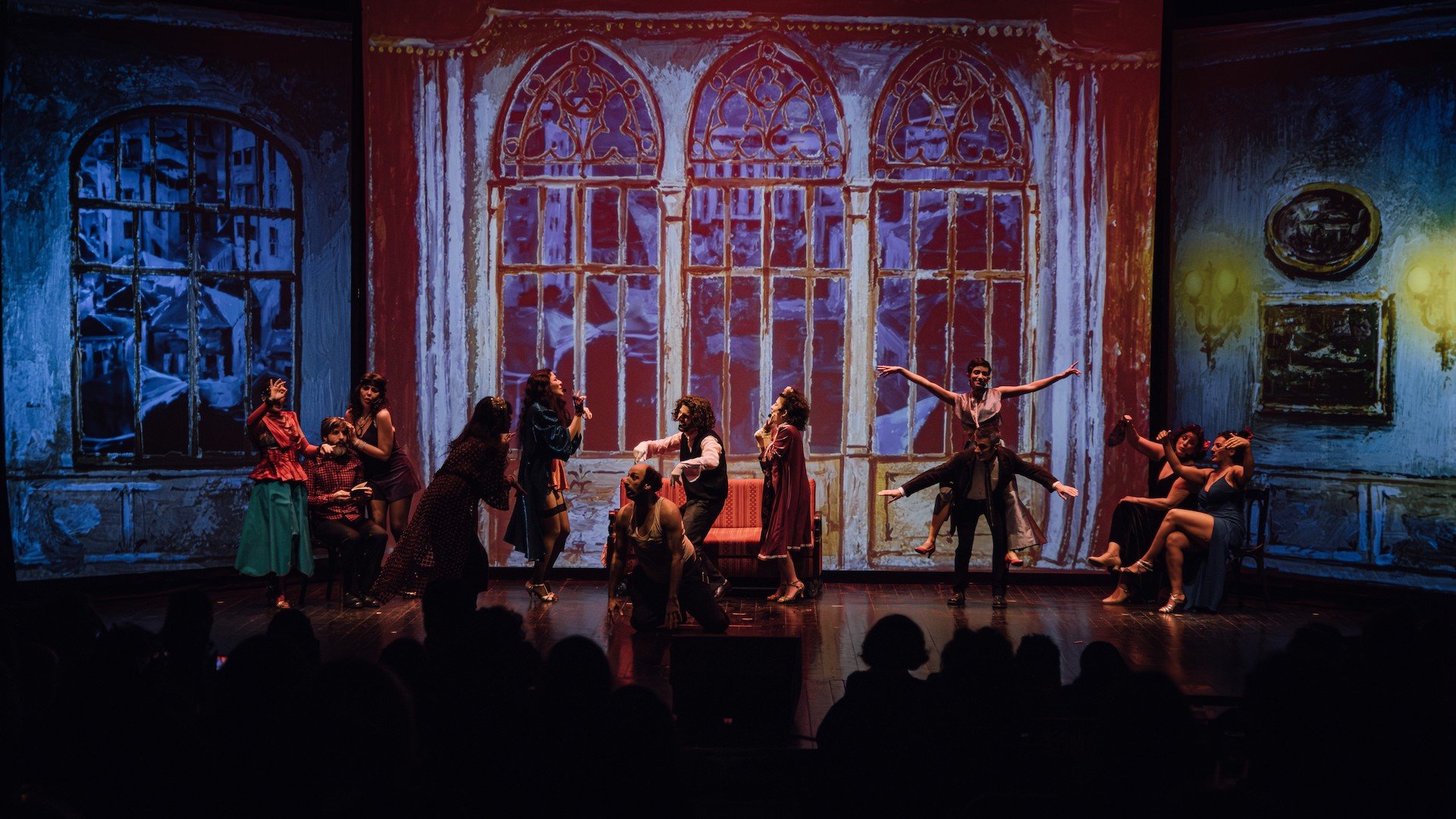
A scene from “Al Souq Al Oumoumi." (Credit: Peter Houaiss)
The latest sensation out of Metro Al Madina, the play “Al Souq Al Oumoumi,” hit the stage on Jan. 11, leaving the audience in a standing ovation. Move over “Hishik Bishik”; there's a new cabaret show in town, and it’s ready to take you on a trip down memory lane — a lane with a neon sign that reads “Beirut's Red-Light District.”
Known for its knack for turning forgotten history into a spectacle, Metro Al Madina has done it again. “Al Souq Al Oumoumi — meaning “Public Market” in Arabic — resurrects Beirut’s notorious red-light district, which thrived after the French mandate legalized sex work in 1931. The French, not content with regulating just politics and taxes, extended their expertise to brothels, bars and female companionship.
Picture this: laws forbidding sex workers near schools or religious places, mandatory bi-weekly doctor visits and strict dress codes. If you thought your job had bizarre regulations, think again. And let’s not forget the separate times allotted for the French army and local men — because a scheduling conflict between soldiers and local residents is the last thing anyone needs.
Through two hours of witty skits resembling moving paintings, the 12-member cast of “Al Souk Al Oumoumi” tells the stories of some of the women that peppered Beirut’s 1950s brothels.
 A scene from “Al Souq Al Oumoumi." (Credit: Peter Houaiss)
A scene from “Al Souq Al Oumoumi." (Credit: Peter Houaiss)
The play kicks off with three main characters provocatively straddling chairs, reminiscent of an erotic dance, with their backs turned to the audience. This sets the tone for a narrative that explores the unconventional love stories of these characters, delving into the class struggles and circumstances that lead Lebanese women into a profession often frowned upon. The show’s dramatic conclusion, involving a crime of passion, draws poignant connections between the historical aspects of the Souk and the contemporary morality war surrounding sex work.
All the while, the play navigates the paradoxes of women’s roles in their own prostitution and the government’s peculiar endorsement of the market.
“Al Souq Al Oumoumi” doesn’t just entertain; it offers a glimpse into the socio-economic aspects of Lebanon’s so-called “golden age” of the 1950s, when the powers-that-be turned a blind eye to the illegal by legalizing it.
In a world where the oldest profession is still stigmatized, “Al Souq Al Oumoumi” asks us to consider who the real corruptors are — the sex workers simply providing a service, or the politicians who fail to provide any. The play’s conclusion prompts us to question whether we truly understand the convoluted history that brought us to this point.
 A scene from “Al Souq Al Oumoumi." (Credit: Peter Houaiss)
A scene from “Al Souq Al Oumoumi." (Credit: Peter Houaiss)
Time machines on stage
Metro Al Madina, packed to the brim for the debut, proves once again that nostalgia is a currency that never loses its value. While we’re busy with our smartphones, underpaying jobs and the existential dread of one collapsing security pillar after another, Metro transports us to a time when the only things collapsing were societal norms in Beirut’s “golden age.”
I’ve lost count of how many times I’ve seen “Hishek Bishek,” another one of Metro’s nostalgia-driven shows. I even dragged my mother along for the ride. Watching her face light up with joy as the songs from her teenage years come alive on stage is priceless. Metro doesn’t just produce theater; it manufactures time machines.
The success of Metro Al Madina poses a conundrum for Lebanon’s art scene. Its relocation to Clemenceau’s Aresco Palace, more than five times larger than its previous stage, boasts a spectacular sound system that has already showcased some jaw-dropping concerts since opening in July 2023.
The combination of a new location with a new production creates the feeling that Metro has launched into a new era. With each step forward, there’s always a lurking menace ready to reduce progress to rubble — usually in the form of war. But in the meantime, let’s revel in the fact that Metro is still injecting life into Lebanon’s cultural scene.